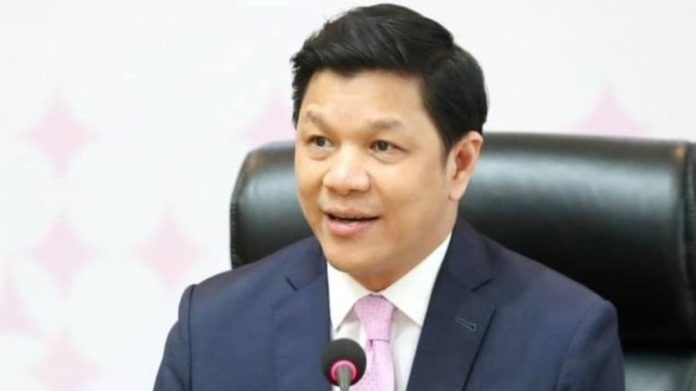Vitai Ratanakorn, the incoming governor of the Bank of Thailand, has signaled a policy shift toward more aggressive monetary easing as he prepares to assume leadership of the central bank in October. His comments come amid a period of economic stagnation, with Thailand facing sluggish growth, trade friction with the United States, and underperformance in key sectors such as tourism and manufacturing.
Speaking to reporters last week, Vitai acknowledged the difficult landscape. “We must accept that the Thai economy is not doing so well,” he said, expressing concern that the slowdown may persist longer than expected. His assessment aligns with recent data showing muted industrial sentiment and declining consumer confidence.
Vitai, 54, currently serves as president and CEO of the Government Savings Bank, Thailand’s largest state-owned lender. Pending royal endorsement, he will take over from incumbent governor Sethaput Suthiwartnarueput. He has made clear his belief that additional interest rate cuts may be necessary to stimulate growth. “Proactive easing is important,” Vitai told the Thai financial daily Krungthep Turakij on June 20, adding that the current 1.75% repurchase rate could be cut “much further.”
The Bank of Thailand has already implemented three rate cuts over the past year, bringing the benchmark rate to its lowest level in over two years. However, Vitai argues that bolder action may be required to counter prolonged weakness.
His stance contrasts with that of the current central bank leadership, which has resisted calls for deeper cuts, citing the need to preserve monetary policy space. This position has led to public disagreements with the ruling Pheu Thai party, which took office in 2023 and has openly criticized the bank’s perceived reluctance to support the economy. In May 2024, party leader Paetongtarn Shinawatra, prior to becoming Prime Minister, referred to the bank’s independence as an “obstacle” to economic recovery.
Vitai’s alignment with looser monetary policy could ease tensions between the central bank and government. Still, it has raised questions about his independence. Addressing these concerns directly, Vitai wrote on his Facebook page on July 8: “I am confident that I can make decisions independently, based on principles and prioritising the nation’s interests, free from the influence of any groups.”
Educated in economics and law at Chulalongkorn and Thammasat universities, with further finance studies at Drexel University in the United States, Vitai’s career spans both the private and public sectors. He previously held positions at Charoen Pokphand Group and Nok Air. In 2018, he was appointed Secretary-General of the Government Pension Fund, managing assets worth over 1.4 trillion baht (approximately $43 billion), and in 2020 took the helm at Government Savings Bank.
Former colleagues describe him as pragmatic and consensus-oriented. “He is more of a practicalist than a theorist,” said one former associate, speaking anonymously due to media restrictions.





